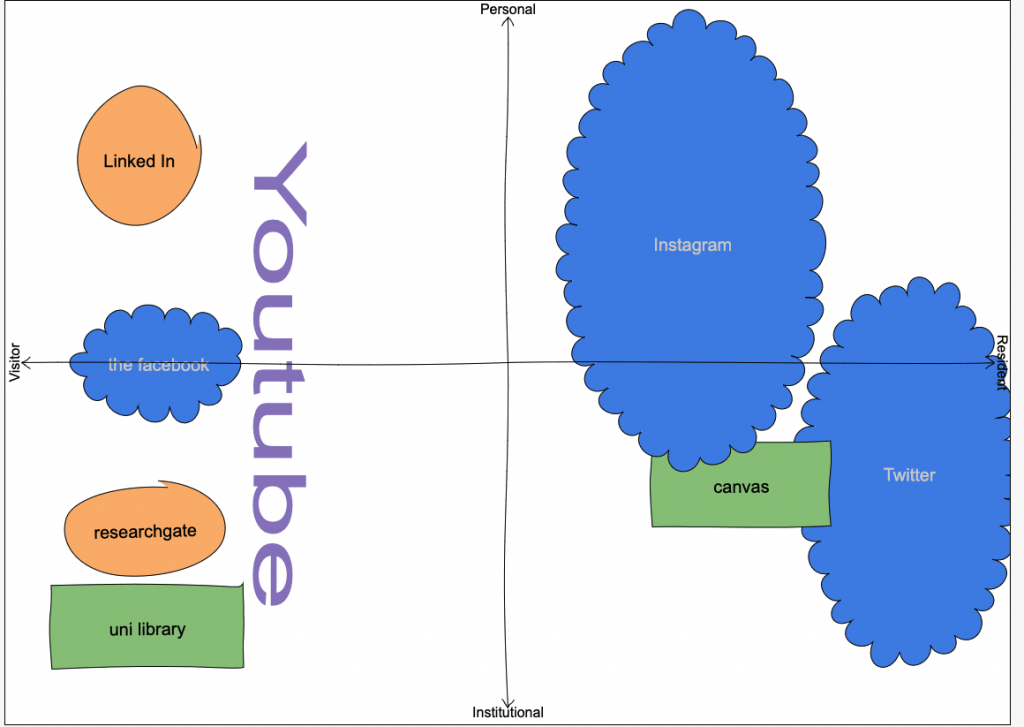The quick answer is no, but it turns out no-one is really. Or maybe just those who pulled out the screwdriver and started fiddling round with the mother/hard board in the 80s.
I remember playing the games on the Commodore 64 when I was a kid, and trying to get the disk out of the classroom Apple computer (why oh why didn’t it come out?!). But I’ve never had an urge to look inside the box, and I can’t build or program or any of the fancy stuff.
But I love social media. I read a paper for an hour, then reward myself with a Twitter scroll. There are some super funny people out there- I love The Chaser headlines, #academicchatter and ‘asking for a friend’. A great way for me to advertise my work, my interests and to keep in touch with the general field of science.
I have reflected on how I use different social media accounts before today- I have a lurking, suspicious presence on Facebook, which is good for keeping in touch with community events and groups. Instagram is all my baking friends, and my feed is a homage to gluten. And Twitter is my scientific community. Linked In on occasions- this seems a good way to keep touch with commercial companies and industries, and researchgate is a good way to find out the collected works of a new colleague, student or collaborator.
Where does all this fit on my Personal to Institutional; Resident or Visitor axes a la VandR diagram? Here tis:

My questions for teaching: Do I ask students to use the platforms I already use? Or do I join them (maybe they use wechat and tiktok?). Or do we meet somewhere in the middle?
Hi Kate, I think the question about our online social interaction with students is definitely worth looking at. For the last around 5 years, I’ve been creating a dedicated Facebook group for each of my subjects. I use the group to post articles, posts, videos, ecc. that are relevant and engaging and relate in some way to what we are doing in class. It’s also useful to promote Italian events, associations, organisations, etc. I also sometimes post reminders about classes or work that need to be done in a more informal conversational way. I don’t generally accept friend requests from students and never issue friend requests. And I don’t engage with students particularly on any other platforms – I’m a sort of Twitter user and have Insta but always forget about it…lol… I remember discovering around 10 years ago that students didn’t particularly like the idea of their technologies being commandeered for uni purposes but I think that has changed as we are all more and more resident and exist online. This paper is pretty interesting (https://files.eric.ed.gov/fulltext/EJ1160610.pdf) and really just says what we already know but the discussion around teacher positioning and credibility makes you think
I am always challenged by whether my teaching and I are welcome on the platforms students use outside of their learning. I reflect on my own use of Facebook – I prefer to keep it a personal space for family, friends, hobbies and podcast-related communities. I find it hard when my professional life leaks in, such as groups related to my profession (as a veterinarian). While it is convenient to receive professional content via social media and I enjoy the collegial conversations, when I open Facebook I am specifically not “working”.
So I reflect on whether my students might experience the same – do they want content from their learning community to bleed into the platforms that they use to relax and decompress, or is there value in the separation?
I do suspect TikTok sits outside this concern, though – the 15 second video is actually a great content style for micro-teaching and the platform seems to be more about content and less about community and connection. Here’s my favourite TikTok science communicator, whose content I enjoy via twitter rather than directly on TikTok itself: https://twitter.com/AstroKirsten